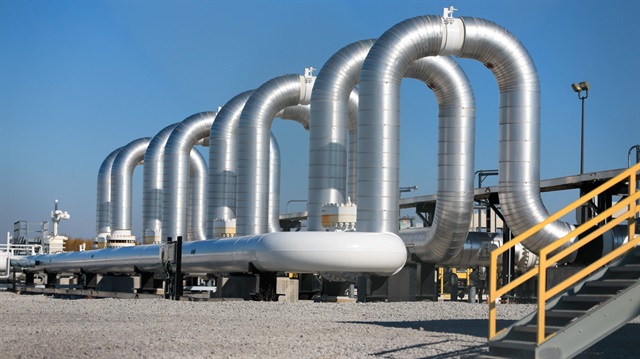
Iraq's neighbors acting rationally in resisting KRG's illegitimate referendum, says TURCAS board member Matthew Bryza
Turkey can utilize its strong position and continue northern Iraq's oil flow via its territory to ensure the economic survival of the Kurdish Regional Government (KRG), Matthew Bryza, a board member of Turcas Petrol and former U.S. diplomat, has told Anadolu Agency.
Speaking exclusively to Anadolu Agency, Bryza said the timing of northern Iraq’s illegitimate independence referendum is poignant, with Iraqi and Syrian forces having defeated Daesh in northern Iraq, thus strengthening their political position.
Bryza said that unfortunately with the important role that Kurdish forces, as well as PKK/PYD forces play in the fight against Daesh, the president of the KRG, Masoud Barzani, could have considered that the U.S. would put less pressure on the Iraqi Kurds in holding their independence referendum.
The PKK is listed as a terrorist organization by the EU and U.S. as well as Turkey, although only Turkey has designated the PKK/PYD as a terror group in Syria, where it is used by the U.S.-led coalition to fight Daesh.
Bryza warned that a big problem is the U.S.' partnership with the PYD.
"Iraqi Kurds might have thought that the moment would pass," he said, adding that "this is a huge problem and I think a big mistake."
However, he said that neighboring countries to Iraq are acting rationally and in accordance with their own interests.
Bryza argued that in international law, there are only two circumstances when it is considered legitimate to hold a referendum and separate from another country.
"It is in the case of decolonization or in the case of massive human rights violations. I am certain that all of the neighbors of Iraq are arguing that neither of those conditions hold true for Iraqi Kurds and therefore it [the referendum] must be illegal," the U.S. diplomat said.
"So they are behaving in a rational way to resist the referendum, and of course in international law usually the principle of territorial integrity is the guiding principle because nation-states make international law and nation-states want to protect themselves," he added.
However, he said that although Iraq's neighbors are acting rationally, in the long run, he advised Turkey to take advantage of the situation by letting the controversy blow over and then use the fact that the KRG depends on Turkey for economic survival for the benefit of all.
"The only way to monetize the KRG’s energy resources is through Turkey and together with Turkey," he said.
In response to the question of the effects of the referendum on current energy projects and investments, Bryza said that if military, ethnic and political issues continue because of Kirkuk's stance in persisting to separate from the central government in Baghdad, investments will be put at risk.
"But in the long run, it is a good thing to invest there so oil will be developed around Kirkuk. Eventually, sooner or later, the tension between the Kurdish region of Iraq and Turkey will die down and oil exports, probably from the Kirkuk region, will proceed through Turkey.
“That has to happen. The question is how quickly we get to this point. I hope fast," he declared.
The U.S. diplomat said the KRG's oil had very little impact on the global market with only a slight increase in prices evident when the tension rose between the KRG and Turkey.
"But it is a small percentage of global supply. The world consumes about almost a hundred million barrels per day, in other words, 93 million barrels per day. So exports from the north of Iraq right now are less than one percent of this -- a small impact on global oil supplies but very important for the stability of the KRG, Iraq and Turkey. The export of oil from the KRG into Turkey and beyond has the potential to build on lasting partnerships between Turkey, the KRG and Iraq," he said.
The U.S. and Turkey -- considered one of the U.S.' most crucial allies -- share very similar interests in the Middle East, however, their actions are quite different, the diplomat said.
"Actions are split. But what I mean by shared interests; the U.S. and Turkey share interests in defeating Daesh, they share interests in Iraq’s territorial integrity, and they share interests in Syria’s territorial integrity," he explained.
The U.S. and Turkey share interests in ensuring that Turkey is strong and successful in the region.
"In energy, there is a shared interest in being able to move from the Caspian region from the Middle East into Turkey and then beyond Turkey on the basis of market forces rather than monopoly," he concluded.


